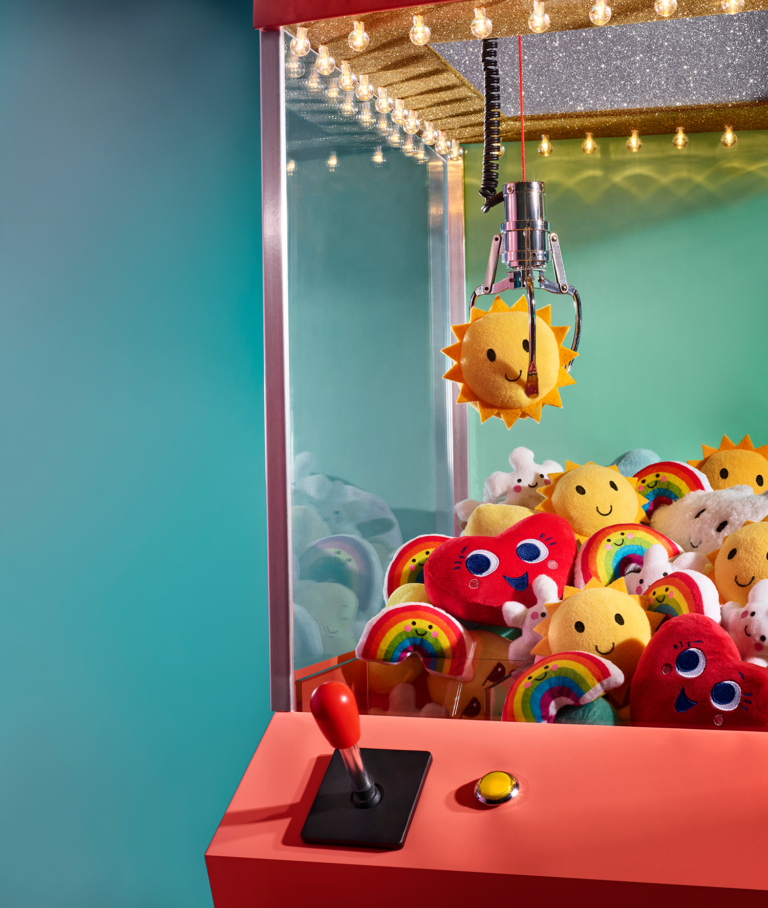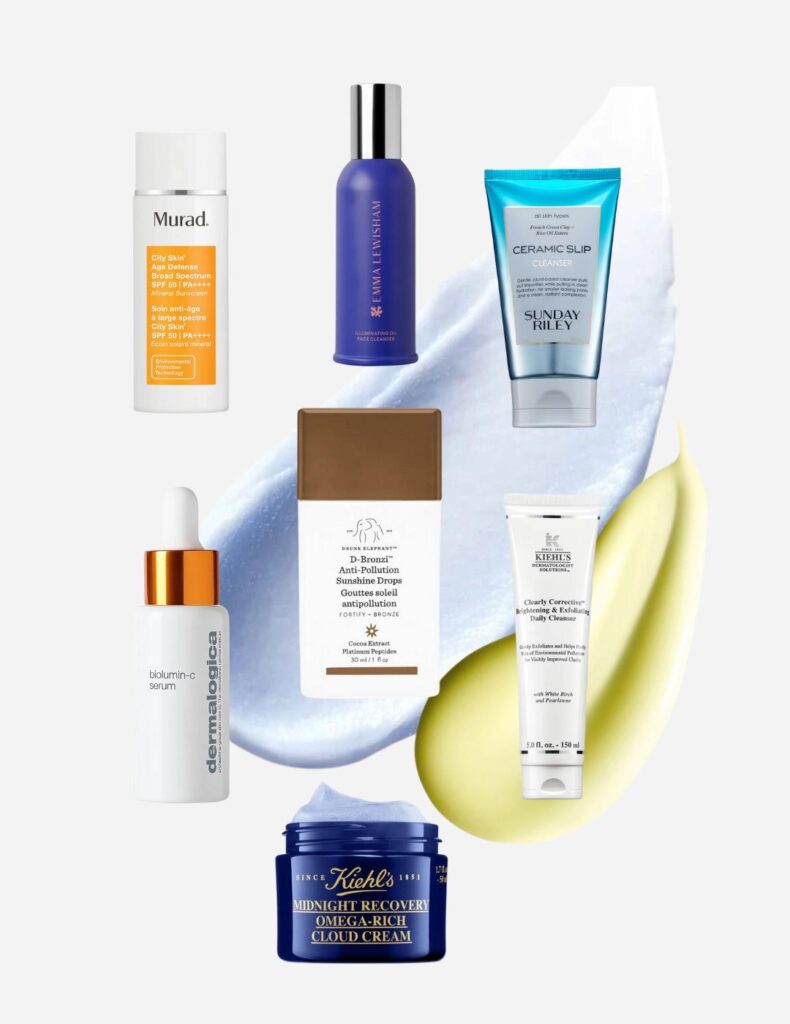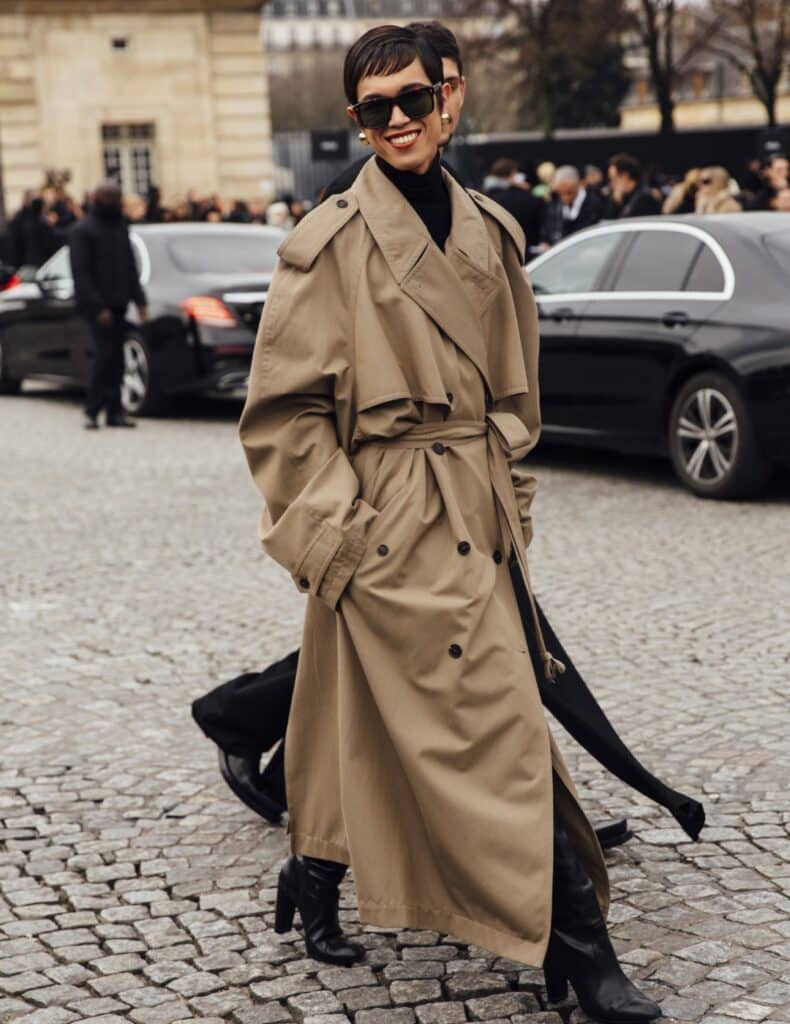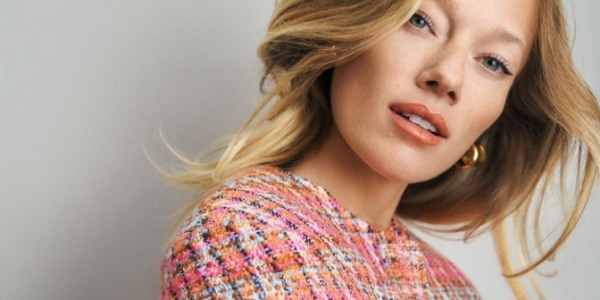
As someone who describes herself as a “pessimistic with optimistic rising”, Leni wasn’t surprised when the pandemic and Melbourne’s gruelling lockdown resulted in her more nihilistic tendencies winning out over an otherwise-attempted ‘glass-half-full’ approach. “I don’t think the past two years greatly impacted my outlook on things; I think it just exacerbated natural tendencies and heightened the peaks and troughs of my mental-health cycles,” she says.
Georgia, whose psychiatrist once described her depression as “existential” (and that’s pre-pandemic), feels similar. “When lockdown began, it was this weird comfort because I didn’t feel like some privileged brat who couldn’t see how good I had it any more,” she explains. “Instead, it was like everyone else was now feeling a similar way.”
Even those known for their unwavering positivity — you know, the people who manage to somehow genuinely look happy during a Monday-morning meeting in the office — have found their foundations affected by the intensity of the past few years.
Megan, who used to be described as “positive to the point of annoying” by friends, says that she still feels as though she’s an “optimist at heart”, but lately has been finding herself being “way more pessimistic”. On top of the state of the world today — a climate crisis, war in Europe, and women’s rights to their own bodies still being up for debate — more personal matters, such as a break-up and a rough bout of endometriosis, have made for an almost unbearable mental load. To put it simply, Megan says, “there’s a lot of shit going on”.
The negative psychological effects of the pandemic have been well documented, with a 2022 study for New Zealand’s Mental Health Foundation finding 36 per cent of people surveyed were experiencing poor emotional well-being, up from 27 per cent a year ago. But, despite this, other studies indicate that we’re collectively feeling more optimistic about the future. In a survey by market research leader Ipsos, more than three quarters of the 22,000 people interviewed across 33 countries reported feeling optimistic that 2022 would be a better year for them personally than 2021 had been. Top in the positivity stakes were the Chinese, 94 per cent of who expected a better year. Sure, 2021 isn’t setting the bar too high as a comparison (just let us outdoors and give us a barista-made coffee and we’re happy at this point), but given the continued onslaught of bad headlines, the fact that we’re managing an optimistic outlook overall is worth celebrating.
The mood online seems to mirror these positive findings. On social media, preparations are underway for people to live a ‘Rat Girl Spring’, ‘Feral Girl Summer’, and to go full ‘Goblin Mode’. All three questionably named trends, which are largely proliferated by Gen Z on TikTok, promote a similar ethos: stressing less; socialising more; and living life like you’re young, wild, and free — emphasis on the wild.
But, while we’re well overdue our much-anticipated roaring ’20s, experts who I spoke to warned that we may be getting a bit ahead of ourselves.
Clinical psychologist Kate Beresford suggests that we’re seeing something very different between the general population and people who struggle with their mental health. “There is definitely a lot of optimism bias,” she explains, referring to the condition whereby we believe our chances of experiencing negative events are lower than those of our peers, while our expectations of experiencing positive events are higher. “You see people jumping back into normal life, booking holidays, and celebrating the end of the pandemic. Whereas, I’m constantly still meeting individuals and families who talk about the lasting effects. Everything from isolation to disrupted routine to financial stress will be impacting mental health, and many in society — especially those in lower socioeconomic situations — for a long time. For some, it’s simply not fair to expect them to be optimistic — or to be prepping for a Feral Girl Summer.”
Emma, another woman who’s felt the weight of the past few years change her frame of mind, had another, equally important, note to make: “I thought I was a pessimist but turns out it was just depression,” she DM’d me, adding a ‘lol’ for equal measure at the end of the message.
For Leni, who relates to many of the points Kate makes, finding optimism during this time has come about in an unlikely way. “I now have this weirdly kind-of-dystopian optimistic pessimism that’s developed over the past few years, where I can look at the negatives in a situation and highlight them in a humorous way,” she says. Think Phoebe Waller-Bridge’s character in Fleabag, for example, or the recent conversations — including in an issue of this magazine — about the rise in dissociative feminism and the dark humour that goes alongside it.

“Instead of trying to point out the positives in a challenging situation, myself and a lot of my friends will now look at something that’s happened in our lives or in the world and find it almost funny how bad things are in a given situation,” explains Leni. “Sometimes you just need to see the negatives for what they are, and sometimes, paradoxically, this process doesn’t have to be that negative or pessimistic at all. It can actually end up being quite uplifting, validating, and comforting.”
Leni and her friends’ solution makes sense: we’re sick of toxic positivity and hustle culture, but still want a positive outlook. Ideally, one that doesn’t come packaged up with girlbossing or the earnest Instagram slacktivism of years past. Google searches for the word ‘optimism’ show results for gratitude journals, mindfulness, and visualisation. But Goop-adjacent comparisons aside, science shows that a lot of what these articles are preaching really does work: focusing on optimism breeds — surprise, surprise — feelings of optimism. As neuroscientist Tali Sharot explains in her TED Talk about this very topic, this can act as a self-fulfilling prophecy: by believing we will be successful, we are more likely to be successful.
Furthermore, optimism not only positively affects one’s life but also lengthens it. According to research from Boston University School of Medicine, optimists have an 11–15 per cent longer lifespan and 50–70 per cent greater odds of reaching the age of 85 compared with the least optimistic groups. In contrast, previous studies have found negative emotions, including anger and hatred, can have a poor impact on your health, including increasing your risk of heart attack.
Many of the optimists that I spoke to credited small, everyday pleasures — or, as the New York Times recently dubbed it, ‘little treats’ in an article perfectly titled, Yes, You Do Deserve a Little Treat — for adding joy into their lives. This can be anything from starting the day with an almond croissant and an oat milk latte from your favourite café to taking a walk in the sun or spending an afternoon switching off by reading a book. As optimist-in-training Lily says, “I have moments where I’m sitting with friends around a dinner table, laughing over a silly little joke and I feel such hope and happiness for my future and how things will only get better as I get older.”
This makes sense. As Sydney-based clinical psychologist Larnee Flannery explains, the more we focus on things out of our control, the more anxious and hopeless we are likely to feel. “In line with Acceptance and Commitment Therapy (ACT), focusing on what you can control — activities that you do in the here and now — in a values-driven way, is fundamental for well-being,” she says. “There has to be a balance. If a person is struggling a lot with their own anxiety, focusing on the news and things completely out of their control is likely to be unhelpful. However, for someone else who is in a better space to manage their mental health, keeping up to date may be in line with their values and an action that moves them towards the life they want to live, resulting in rising happiness levels.
“The first step is always noticing whether something is going to be helpful and move you towards the person you want to be and how you want to show up in the world,” she continues. “Or whether something you think you should be doing is actually detrimental to both you and the world around you. We have much more control over our current actions than we do over our thoughts and feelings.”
When you do find during a check-in that you are in a space prime for optimising, sharing it around can do wonders. Em takes her optimism one step further than most in what can be succinctly summed up by one of the many positive mantras she lives by: mood follows action. After a shaky period in 2020 when she lost her usual unwavering positive outlook, she’s spent the past 24 months trying to rebuild it with a focus on ‘productive optimism’.
“I think optimism without action or follow-up can be kind of useless,” Em says. “This action could be to do with yourself and future you, through things like seeing a psych, running, or creating space for your own needs; others, through acts of service; the world, through reducing waste and being climate-minded; or your community, through volunteering and donating and giving back.”
A similar theory of how we should view optimism is the ‘Stockdale Paradox’, named after US Admiral James Stockdale, who survived eight years as a prisoner of war in Vietnam and was tortured more than 20 times. When speaking about his frame of mind during that time, Stockdale said that the key to surviving and growing from the experience was to retain faith that he would be released, while at the same time having the discipline to face the brutal facts of his reality. This combination of hope and realism is now known as the aforementioned Stockdale Paradox. Too much optimism, the Stockdale Paradox says, is fantasy or denial, which can be detrimental. The solution is not hopelessness but balance.
Yes, that’s the sign you were waiting for that you do, in fact, deserve a little treat.










